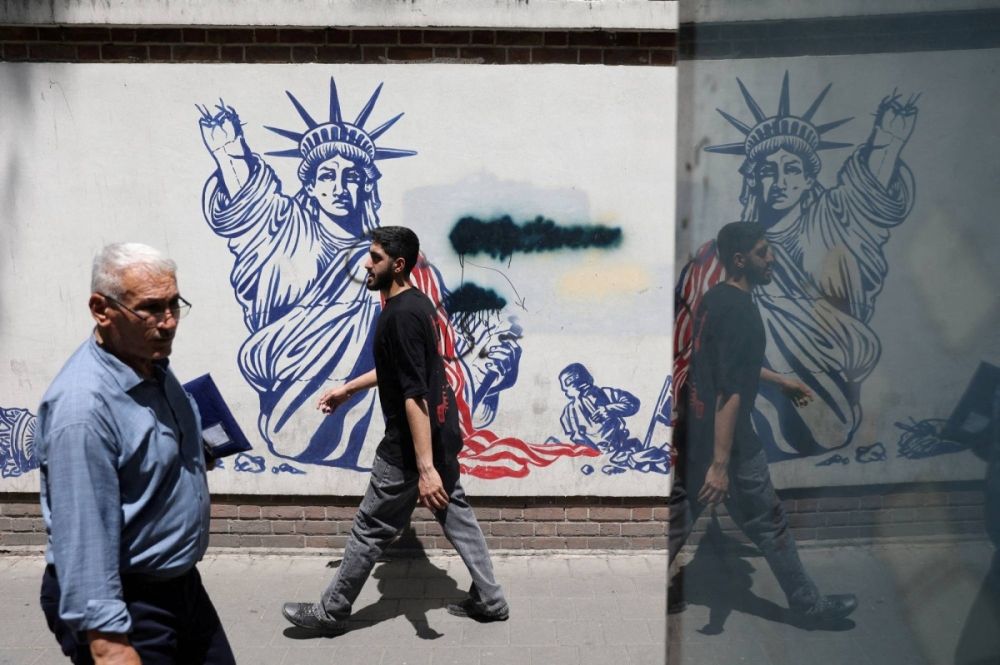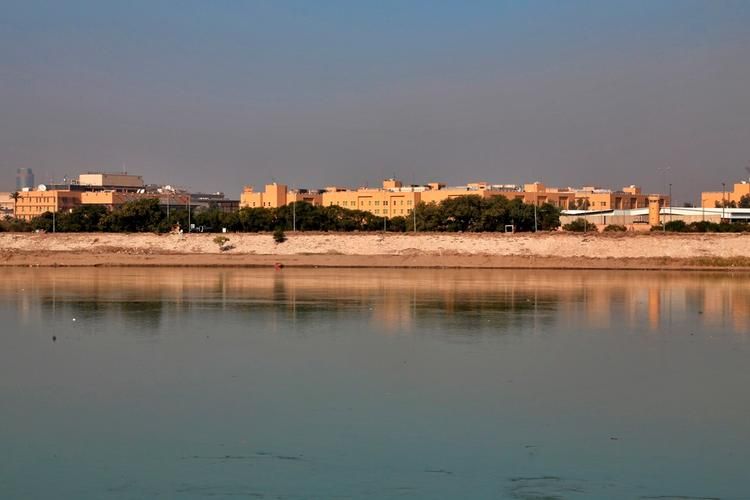
U.S. to pull some personnel from the Middle East amid rising tensions with Iran
By Jeff Mason, Daphne Psaledakis, Idrees Ali, and Ahmed Rasheed – Reuters
Jun 12, 2025
WASHINGTON/BAGHDAD –
U.S. President Donald Trump on Wednesday said American personnel were being moved out of the Middle East because “it could be a dangerous place,” adding that the United States would not allow Iran to have a nuclear weapon.
Reuters reported earlier on Wednesday that the U.S. is preparing a partial evacuation of its Iraqi embassy and will allow military dependents to leave locations around the Middle East due to heightened security risks in the region, according to U.S. and Iraqi sources.
The four U.S. and two Iraqi sources did not say what security risks had prompted the decision and reports of the potential evacuation pushed up oil prices by more than 4%.
A U.S. official said the State Department had authorized voluntary departures from Bahrain and Kuwait.
The decision by the U.S. to evacuate some personnel comes at a volatile moment in the region. Trump’s efforts to reach a nuclear deal with Iran appear to be deadlocked and U.S. intelligence indicates that Israel has been making preparations for a strike against Iran’s nuclear facilities.
> “They are being moved out because it could be a dangerous place, and we’ll see what happens,” Trump told reporters. “We’ve given notice to move out.”
“They can’t have a nuclear weapon. Very simple, they can’t have a nuclear weapon.”
Trump has repeatedly threatened to strike Iran if talks over its nuclear program fail. In an interview released earlier on Wednesday, he said he was growing less confident that Tehran would agree to stop enriching uranium, a key American demand.
Iranian Defence Minister Aziz Nasirzadeh said on Wednesday that if Iran was subjected to strikes, it would retaliate by hitting U.S. bases in the region.
The U.S. embassy in Kuwait said in a statement that it “has not changed its staffing posture and remains fully operational.”
Military presence
The United States maintains military bases in Iraq, Kuwait, Qatar, Bahrain, and the UAE.
U.S. Defense Secretary Pete Hegseth authorized the voluntary departure of military dependents from locations across the Middle East. This mainly affects family members in Bahrain, where most are based.
Another official noted that no changes had been made at Al Udeid Air Base in Qatar or at the U.S. embassy in Qatar, which remains fully operational.
Iraq’s state news agency reported no recorded security indicators that would warrant an evacuation.
Tensions
Oil futures jumped $3 following news of the Baghdad evacuation, with Brent crude reaching $69.18 a barrel.
Earlier, Britain’s maritime agency warned of potential military escalation impacting shipping in waterways near Iran and advised vessels to proceed cautiously through the Gulf, Gulf of Oman, and the Straits of Hormuz.
Britain’s Foreign Office stated it would keep its embassy operations in Iraq under review.
Iraq, which has ties with both the U.S. and Iran, hosts 2,500 U.S. troops. Since the war in Gaza began in October 2023, Iranian-backed groups in Iraq have attacked U.S. forces, though attacks have declined recently.
Israel and Iran engaged in direct fire exchanges last year — a first — with missiles and drones flying over Iraq. Israel has also targeted Iran-linked groups in Iraq and Syria.
Recently, the U.S. deployed more military assets to the region but has since withdrawn some, including B-2 bombers and a second aircraft carrier.
The next round of U.S.-Iran nuclear talks is expected soon. Iran is anticipated to submit a counterproposal after rejecting a U.S. offer.
A senior Iranian official told Reuters:
> “Any military action against Iran, whether by the U.S. or Israel, will have serious consequences.”
Iran’s U.N. mission posted on X (formerly Twitter):
> “Threats of ‘overwhelming force’ won’t change facts: Iran is not seeking a nuclear weapon and U.S. militarism only fuels instability.”
The post appeared to respond to U.S. Army Gen. Michael “Erik” Kurilla, who said he gave the president “a wide range of options” to prevent a nuclear-armed Iran. Kurilla postponed testimony to Congress due to the ongoing tensions.
